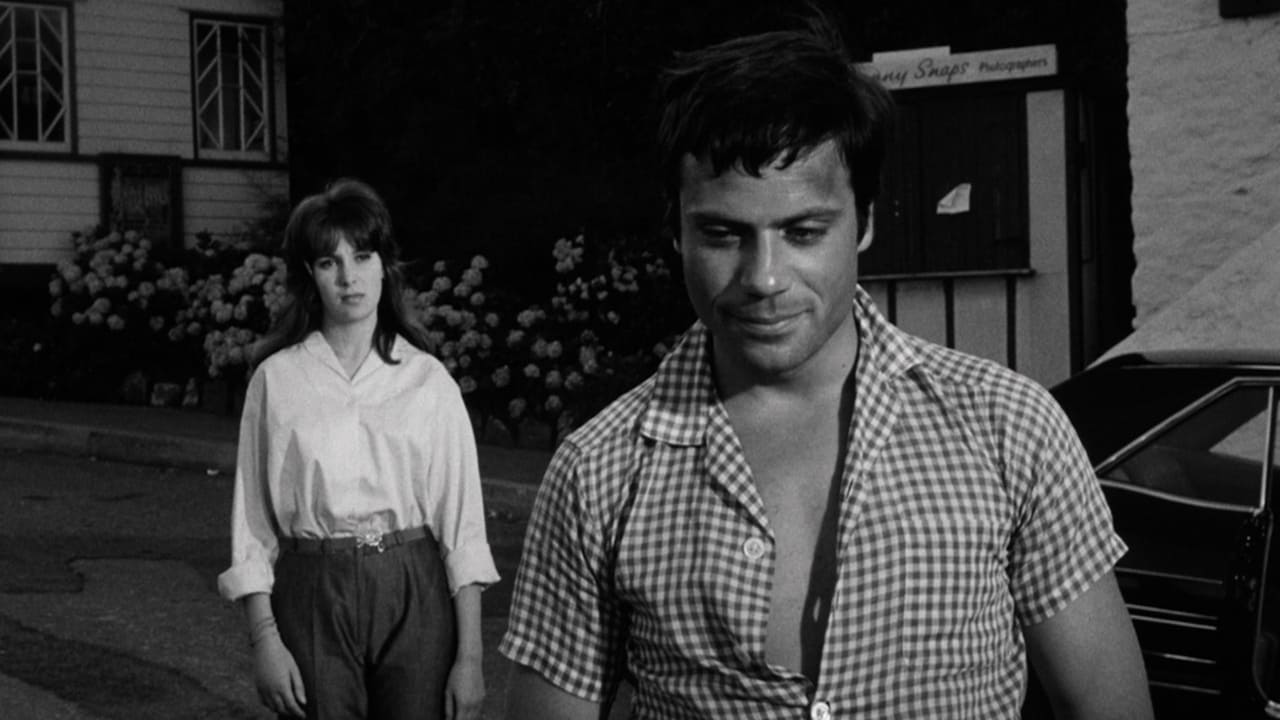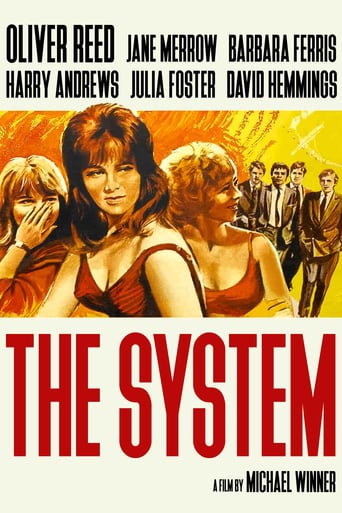

Randy British lads chase available birds around the seaside; avid shutterbug Oliver Reed 'collects' young lovelies, but may have found the girl who has won his heart and not just his libido. Directed by Michael Winner, photographed by Nicholas Roeg, and starring a somewhat-green yet still charismatic Reed, "The Girl-Getters" (a.k.a. "The System") turns out to be a just-OK drama about would-be jaded boys and girls contemplating sex (the hunt for a willing girl seems to be more exciting to the guys than the actual conquest). It's hard to get an accurate reading on the youthful Oliver Reed: his heavy lids and soft, persuasive bedroom voice ooze false sincerity--but when put on the spot by the teasing model who sort-of fancies him, he suddenly becomes a deadly serious grown-up contemplating his feelings. The rock & roll music and pre-Swinging London fashions (and morals) are interesting, but Winner's quasi-documentary style is scattershot, and the plot doesn't gather much momentum. *1/2 from ****
... View MoreLooking back at any 1960's film one can't but help look at the shops, the streets, the way people dressed, the girls, and and the boys. The food even, I noticed the Kurzel cake display in one scenes, this is all great visual history. The film is obviously cashing on the new found Great British Youth culture, on the band waggon of the Beatles, A hard Days night. A film well worth seeing, but perhaps not too many times. Wendy Richards, gets a very small walk on part, and like the DVD cover box said the film contains a host of British stars some were to make it big much later on. The film is very tame by todays standards but there is a feeling of a youthful freeing up which was happening at the time, a good period film of times gone by. See it today.
... View MoreYou might think that by 1964 the world was all swinging sophistication, but no it was like this, I remember. I had recently started working, in a bank. It was hand written ledgers and an outside toilet! Yep, life revolved a fair bit around getting girls and then making sure you didn't get them pregnant and then 'having to get married'. Everyone is s bit too old here, of course, although David Hemmings looks like a little angel. Oliver Reed puts in a good performance as the leader although it's hard at the end to take his more introspective ponderings. Great direction by Michael Winner, there not many people have said that, and the movie speeds along with some excellent sequences, especially the wedding celebration on the beach, played more like a wake. Winner is an under rated director, he did a couple of others of this ilk, then I like his Innocents and there is Death Wish. I liked the hated Death Weekend but in general his career went downhill and it stops people giving the earlier films a chance. Well worth watching, if only to appreciate that the mid 60's in Britain were still much like the 50's, except with teenagers.
... View MoreWhen I saw " The System " for the first time I was about 14 years of age,and had never heard of Oliver Reed or David Hemmings.By today's standards it is hardly very shocking or thrilling;and yet in 1964 it was rather risqué,being about young men who were essentially trying to get young ladies into bed.It is filmed in black and white,and has a young and very handsome Oliver Reed seducing young ladies,but eventually falling in love.It also has a young David Hemmings,who later goes on to make some of the more memorable films of the 60's.It has many quality performances from British character actors, such as Juliette Foster and John Alderton.It also is directed by the very underrated Michael winner,and is worth viewing for its cinematographic interest,but also for its particular take on the 1960's.
... View More